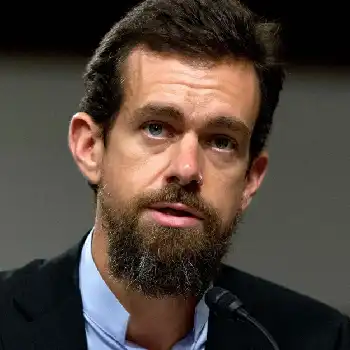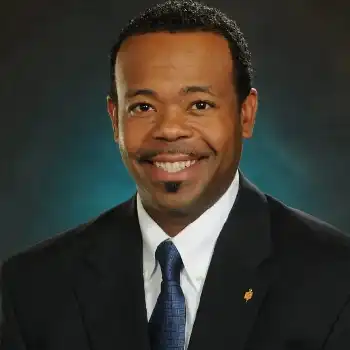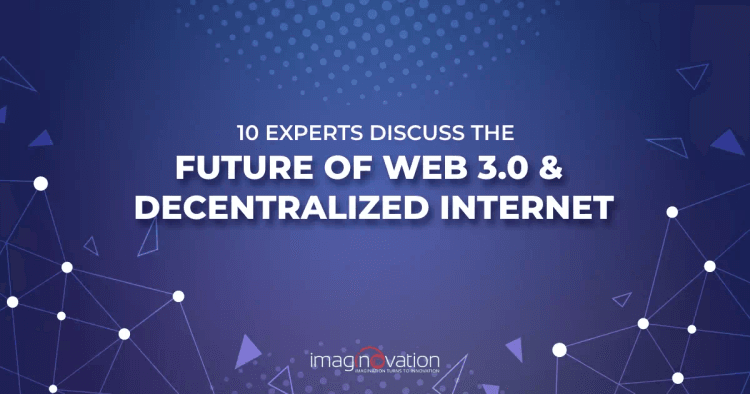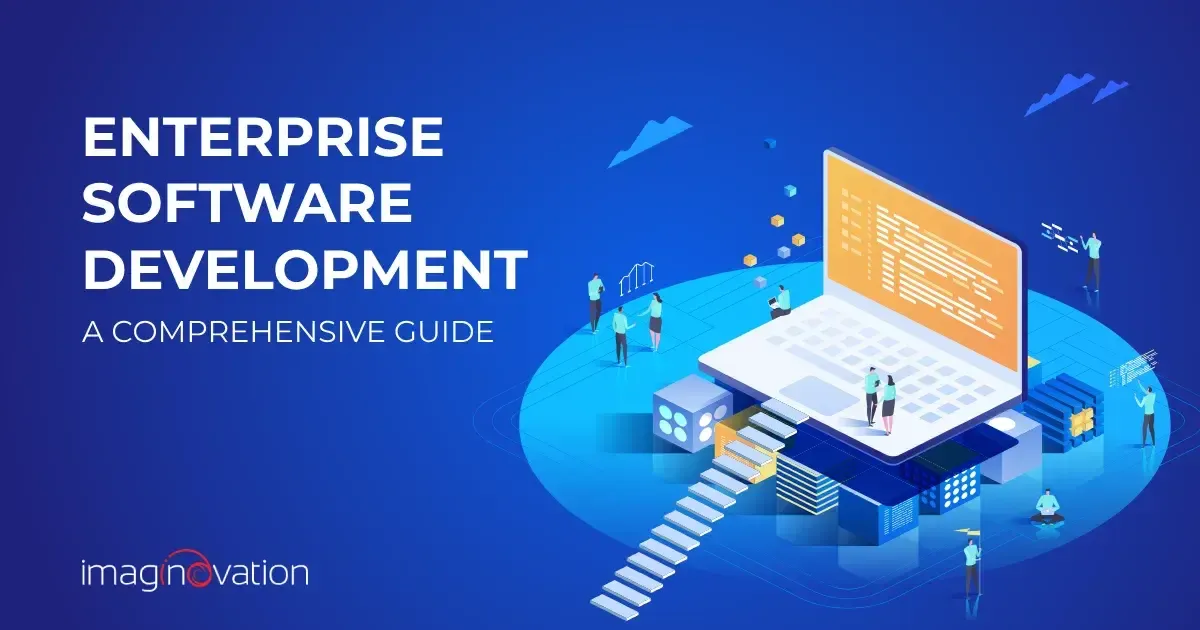To estimate the cost of building a website or an app, use our app cost calculator tool.
We seem to be living in a more utopian society today—straight out of a science fiction novel! We are living in a world of digital transformation that was prophesied decades ago with the increased use of AR and VR.
Today, we find the promise of Web 3.0 (also known as the Metaverse), offering an extension into a three-dimensional virtual world. The great news is that Web 3.0, the decentralized internet, is soon becoming our reality.
With the use of artificial intelligence (AI), machine learning (ML), and the Semantic Web, it is exciting to see the paradigm shift brought to our business landscape.
In this context, we have curated some critical insights on the future of digital transformation shared by some distinguished business leaders. Let's hear from them.
Future of Web 3.0 and Decentralized Internet
How dramatically has our daily life today been affected by Web 3.0 and the decentralized internet?
Picture this—accessing your favorite music or listening to your absolute best podcasts through your voice assistant. You are having a cup of coffee and scrolling through your social media, and you find ads that are perfectly tailored to you. Plus, you plan to e-shop for some groceries, and the apps pop up some fantastic offers that seem irresistible.
Enter Web 3.0! You may think that technology is a mind reader; however, it isn’t! It is not a wizard with magical powers. It is Web 3.0 at work with AI models and big data analytics.
Modern technology uses deep learning, AI, and blockchain to empower real-world human interaction. Isn't that intriguing?
Simply put, Web 3.0 (also known as the Semantic Web) is now capable of predicting the future of the web. The future of digital transformation with related technologies is gaining momentum. It is exciting to explore how you can build a safe and reliable decentralized network that offers you the best possible products and services for your business ecosystem.
Let’s hear from some outstanding experts about what they think about the future of Web 3.0 and the decentralized Internet.
1. Jae Kwon
Jae Kwon is the President of Interchain Foundation. He is a blockchain software architect and co-founder of Tendermint, a project aimed at liberating the blockchain from the costs and limitations of proof-of-work mining.

His mission is to make the technology underlying Tendermint more accessible so that it can accelerate the adoption of decentralized ledger technology.
The decentralized web is a continuing achievement: Jae highlights that the decentralized web is a self-organizing federation of humans and machines that speak many evolving protocols and languages.
He underscores that they are ideally robust in availability and have no central points of failure, whether benign or malicious, created and maintained for the benefit of everyone. Jae believes that the decentralized web is not a right; it is a continuous achievement by humans and machines.
Blockchain can drive greater acceptance of cryptocurrencies: Jae suggests that the next generation of innovation should focus on making blockchain applications friendlier and safer for consumers. He highlights how hardware wallet makers are already making great strides, and their innovations are helpful.
However, he also points out that when we solve the problems of scalability, interoperability, usability, and security for the entire lifecycle of using virtual tokens, the public will feel the benefits of this new technology.
2. Brian Ng
Brian Ng is the Senior Data Science Engineer at Volley. He was the Head of Products at Canary Network.
At Volley, he managed tracking analytics between UX and engineering while building data pipelines for financial and BD reporting. Plus, he iterated experiments, making personas regression models to find patterns in usage, monetization, and voice integration.

Data privacy and remuneration: According to Brian, the difference between Web 2.0 and Web 3.0 lies in prioritizing data privacy and remuneration.
Defining features of Web 3.0: Brian also underscores some of the defining features of Web 3.0.
Monetary and token transfers are being designed to incentivize people to participate and add value to the network.
Data sharing between parties is becoming more modular, granting individual parties ownership over their own data.
3. Shauna Lee Lange
Shauna Lee Lange is the Founder & CEO of Metaverse Placemaking, a design studio for creating spaces in the real world and placemaking in the metaverse. She began her journey at Metaverse Placemaking in 2020 as an information brokerage, network liaison, and reference & resource connector for those wishing to fully participate in Web 3.0, Metaverse, and NFT art & technology spaces.

Two Mental Models: Shauna shares two mental models when she thinks of the metaverse. The "small m - model" involves privatizing individualized platforms where one can create an avatar, attend a concert, or even make a financial exchange.
She shares that the "big M - model" is the transition from Web 2.0 to Web 3.0, where one needs to identify technologies, projects, and people moving the metaverse forward with an eye toward a humanitarian approach.
Unified understanding: Shauna emphasizes the need for a unified understanding of the term "NFT."
4. Jack Dorsey
Jack Dorsey, founder and former CEO of Twitter, Inc., stepped down from the board in May 2022. Jack is also the principal executive officer of payments company Block, Inc. (formerly Square).

Decentralized web platform with Web5: Jack highlighted the launch plans for the Web5 project, which is expected to offer a decentralized web platform that enables developers to leverage Decentralized Identifiers. It will empower developers with Verifiable Credentials and Decentralized Web Nodes to write Decentralized Web Apps with the objective of returning ownership and control over identity and data to individuals.
Greater power over identity and data: Jack underscores that the web democratized the exchange of information. However, a key layer that is missing is identity.
One of the critical aims of the Web5 initiative is to fill a void in the web’s identification system by building this extra decentralized web that puts users in control of their data and identity. The initiative would give power back to the consumer rather than third-party companies and allow better control over their data flow.
5. Mark Zuckerberg
Mark Zuckerberg, Founder, and CEO of Meta. He is an American media magnate, philanthropist, and internet entrepreneur.

Social Connection—the next frontier: Mark explains that the next step would be to augment technologies to advance human connection. He highlights how technology would be augmented to build platforms and experiences that deliver a sense of presence.
He gave examples of how they've started to release Horizon and Workrooms, and some of these experiences help make you feel like you're present with someone in a place.
Holograms are getting more real: Mark highlights how VR is already here, and it won't be long before it gets to mainstream augmented reality. He gives an example of holograms in the living room and shares a reference to a video of himself fencing with Olympic gold medallist Lee Kiefer.
Regarding AR glasses, he underscores how we can soon expect to see normal-looking glasses that can project holograms into the world within the next five years.
Meta Plans to Factor into the Web3 (Metaverse space): Mark explains his intentions to build within the Metaverse, which has become a solid focal point for his enterprise and internal operations. He highlights that the investment is ramping up and will be over $10 billion in the space.
6. Charles Hoskinson
Charles Hoskinson, the founder and CEO of IOHK, is a Colorado-based technology entrepreneur, mathematician, and Cryptocurrency Evangelist.

Decentralization and DAOs: Charles highlights how people must be involved in the decision-making of blockchain projects when it comes to decentralized autonomous organizations. He describes a future where DAOs could be seen as the foundation of Web 3.0.
Transformative Triumvirate as a solution: Charles suggests that blockchains, decentralized transaction systems, and smart contracts could be the solution for the future of Web 3.0.
DeFi needs to turn into real-fi: Charles also highlights how decentralized finance needs to grow and be viewed as real-fi. He stresses that achieving this goal requires more governance and true decentralization.
7. Shermin Voshmgir
Shermin Voshmgir is the director of the Research Institute for Cryptoeconomics at the Vienna University of Economics. She is the author of the book "Token Economy" and the founder of Token Kitchen and BlockchainHub Berlin.

The need to set best practices: Shermin explains that we are still in an early stage of designing tokens depending on the purpose of the network, and there is a need to properly incentivize the people who contribute to the network's purpose in a sustainable way without forming imbalances.
She highlights that currently, we don't have too many best practices, but some exciting use cases with good value propositions are emerging, and we can learn from them for the next social networks that are designed.
The need for more people who will understand micro and macroeconomics: She also highlighted the need for people who understand micro and macroeconomics because we are creating a digital economy, so we need economists who will help create a balanced power structure. Therefore, we need more political scientists. She emphasizes the need to create a technology with a soul.
Social scientists need to be a part of the coding narrative: Shermin reiterates that social scientists need to be a part of the narrative, and the bar of participation needs to be lowered. The tech scene needs to be more inclusive.
8. Juan Benet
Juan Benet is the Founder and CEO of Protocol Labs, Inc. He is also the Founder of Athena, which focuses on advancing the state of human knowledge. He is the co-creator of Filecoin and IPFS.

Decentralized protocols: Juan highlights how relationships are getting inverted, and we're linking content and programs directly to each other, bypassing intermediary organizations and gaining public verifiability. So, Web 3.0 is transcending towards decentralized protocols.
Verifiability is the key: Juan emphasizes that a big part of Web 3.0 is verifiability (making things verifiable), which is the key property in this entire space. If someone is providing a verifiable service, it is important to check that they are correctly providing the service.
Tapping the potential in the years to come: He reiterates that this new technology, Web 3.0, and blockchains will fundamentally change everything, including how we collaborate, build businesses, design governance systems, and operate global organizations. He suggests that this is an exciting development, and we will be able to tap into the potential of Web 3.0 for many years to come.
The keyword he reiterates is the need to make the web and the internet more decentralized, verifiable, and secure.
9. Justin Goldston
Justin Goldston, Ph.D., is a Web3 Systems Thinker and an expert on blockchain technology. He is a Professor and Coordinator of Project and Supply Chain Management at Penn State University. Justin is a Metaverse builder and TEDx Speaker.

Sharing knowledge and working as a collective: Justin shares a societal view of blockchain and urges us to share knowledge about how one can contribute to Web 3.0.
He highlights the need to improve Web 3.0 fundamentals and advance them further so that when we come together as a collective, the sky is the limit in the Web 3.0 landscape.
AI will affect the architecture of blockchain: Justin reiterates that AI will impact the layer-one architecture. He gives an example of the Polkadot blockchain, where improvements would need to be built upon as the blockchain evolves.
Exciting Use Cases: Justin highlights interesting use cases of blockchain implementation and reiterates how to look out for more such cases. For example, Walmart recalled one lot of mangoes in 2.2 seconds, which would typically take them six and a half days. They did this in collaboration with the blockchain they created with IBM.
He gives another example of the federal government using blockchain, where Katherine Holmes helped indict federal agents on fraud, extortion, and embezzlement using the immutable, transparent nature of the blockchain.
Justin highlights how nations are trying to include blockchain in their future growth strategies. The question is, how can technology benefit us as people? He gives examples like placing the power of voting or having control of patient records in the hands of patients through the use of public and private keys, which can reduce errors and give more control to the users. Simply put, future-focused organizations need to augment technology to benefit more people.
10. Julian Hosp
Julian Hosp, Ph.D., is the CEO and Co-Founder of Cake DeFi, a highly intuitive online platform dedicated to providing access to decentralized financial services. Julian is also a Blockchain and Bitcoin expert for the EU.

Web 3.0 Building Blocks and Use Cases: Julian discusses Web 3.0 building blocks, including the Metaverse, EVM, NFTs, ICOs, and more. He highlights the use cases and whether they are hype or a fad.
One of the essential facets he emphasizes is ownership. He talks about the use cases for Bitcoin that have transcended and where people can enjoy transparency, complete trust, and ownership of their financial goods.
Redefining Trust: Julian highlights facets of accountability and predictability, blending with trust. He brings up the critical question of whom to trust when no one is in charge in the decentralized internet landscape and states that the answer is to trust yourself, which is empowering.
He states that the future may not be 100% decentralized and that systems may have to mix. He emphasizes that there will be a need for both centralized systems and decentralized systems.
He also highlights the need for people who can be in charge but won’t misuse our trust. According to Julian, the key is the visionaries who believe in becoming crypto-fit, understanding what is hype and what is legitimate.
Transform Your Business with Web 3.0 and Decentralized Development
Web 3.0 and the decentralized internet are on a trajectory of overall growth. The silver lining for businesses is to focus on legitimate facets of decentralization and overlook the hype.
Get ready to ride the new wave of Web 3.0 to transform your business. Talk to us if you are unsure how to emerge as leaders with futuristic digital solutions in this space.
We can help you with practical use cases and game-changing digital solutions.











